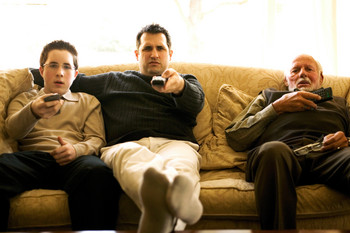Impact of Small Media
Small media has an out-sized influence on public discourse.

New electronic voting machines are accessible to all voters, regardless of disability.

Cuba is a global leader in cancer vaccine development, and normalizing of relations between the U.S. and Cuba could lead to new partnerships between scientists in the two countries.

War in Syria is reducing much of the country’s cultural heritage to rubble.
China's “one-child” social policy may have unintended effects on the children.

In an upcoming case, the U.S. Supreme Court will consider whether diagnostic genes for breast cancer can be patented.

SOUND SCIENCE - Can sounds influence dreams? Emotional similarities between music and speech. Does a deeper voice lead people to vote for a political candidate? Baboons that recognize words. And baby goats with accents.
Rare earth elements make many modern technologies possible, but extracting them results in large amounts of toxic waste.
Scientists from all over the world recently gathered in Washington, DC to mark the fiftieth anniversary of the Antarctic Treaty.
Satellites for human rights, a sprinter's anatomical advantage, the face of aggression, and newborns with accents.

Torture gets a failing grade from neuroscience, a new benthic rover explores the ocean floor, how surrealism makes you smarter, and putting full moon folklore to the test.
Dinosaurs get re-sized, why we favor a biased media, people who never forget a face and more.
HALLOWEEN & POLITICS: What a good scare says about your politics, what's behind our irrational fears, and more.
Researchers study the views of identical twins to investigate whether genetics plays a role in political preferences.
Contrary to common wisdom, people informed about politics are more susceptible to emotional campaign ads.
How can you tell when a politician is telling the truth or laying on the spin? A new computer program may help.
